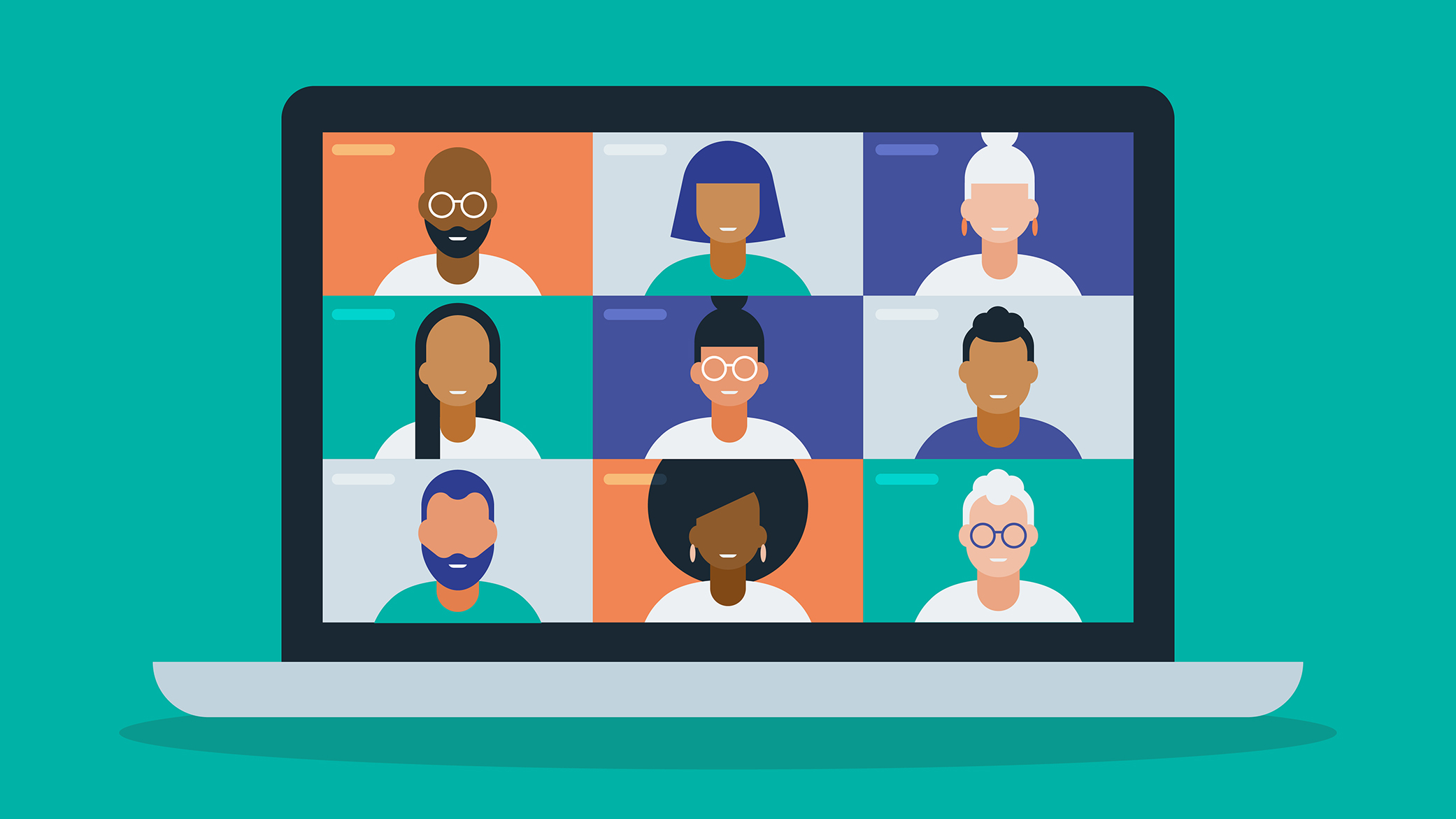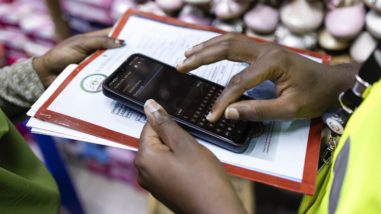Q&A with Isabel Silver Nogueira on her internship with Hewlett’s global transparency team
 RLT_Images/Getty Images
RLT_Images/Getty Images
Isabel Silver Nogueira was a summer intern for the Hewlett Foundation’s Global Development and Population Program. Program Officer David Sasaki interviewed Nogueira about what she learned during her time with our transparency, participation, and accountability (TPA) team and what she hopes for future interns.
What drew you to the internship at the Hewlett Foundation? What sparked your interest in philanthropy’s role in global development compared to, say, government, the private sector, or civil society?
My interest in the Hewlett Foundation was sparked several years ago when I was working at the Center for Latin American Studies at UC Berkeley. The director, Professor Harley Shaiken, showed me a video of the Transparency Breakfasts organized by the Hewlett Foundation in Mexico, where organizations in the transparency and accountability field would get together and share field intelligence. This was my first exposure to the “culture of learning” and community building that Hewlett engenders, and it struck a chord with me.
Shortly thereafter, in 2017, I helped organize the U.S. Mexico-Futures Forum, a conference originally supported by the Hewlett Foundation, which brought together political actors, scholars, public intellectuals, artists, and representatives of social movements, to candidly explore the state of U.S.-Mexico relations. During this process, I learned more about different organizations and projects Hewlett has supported in Latin America, and became very interested in learning more about the foundation’s approach to fostering change. In this way, it felt like coming full circle when I was hired by Hewlett, in part, to support the collection of data and documents for a retrospective of 25 years of grantmaking in Mexico.
My view of development and social change has been strongly influenced by my upbringing. My parents both work in public health, and I’ve always believed that government should play a major role in addressing societal inequities. I grew up in Brazil in the ’90’s and early 2000’s, and saw governments, which only came to power after decades of social activism, lead major social changes, including huge reductions in hunger, and large-scale advances in educational attainment for historically disenfranchised groups. At the same time, significant setbacks by government actors, such as illegal acts to stifle anti-corruption initiatives, or the glorification of past military dictatorships have also made clear to me the need for citizens to stay informed about and help strengthen democratic institutions.
While I have been happy and proud to work with several wonderful and effective NGOs in the past, I occasionally felt like our work didn’t question or address the structural issues that drove the problems in the field we worked in. Working in philanthropy in ways that increase citizen participation to improve government and hold government accountable felt like a mission I could get 100% behind. It aligned with my values and gave me a practical way to support local actors making the change on the ground. It was also an opportunity to better understand the role civil society organizations can play in improving government—from the challenges they face, to how they have achieved successes.
What have you learned during your time here that has surprised you?
Three main things surprised me.
First, I was surprised by how much I learned about the field of transparency, participation, and accountability through the lens of COVID-19 and its effects. Throughout my time at the foundation, I’ve been able to participate in discussions on this topic and had opportunities to hear insights from grantees. Some that I found the most intriguing include:
- COVID-19’s impact on the relationship citizens have to the government, and views on what the government should be responsible for.
- How civil society can help open up the space for citizens to participate in rebuilding and accelerating the recovery from the COVID-19 crises (as discussed by Aidan Eyakuze from Twaweza).
- How to hold government accountable for supporting poor families that are required to stay at home (in regard to lost income, schooling, missed school meals, etc.).
- Strategies that can be used to make urgent improvements in the TPA field of work in a context of an intransigent government, rolling back of democratic reforms, increasing authoritarianism, and state capture (as discussed by Wanjiru Gikonyo from The Institute for Social Accountability).
- The importance of transparency in government reporting on the state of the pandemic, and resources provided to the population (as highlighted by Aidan Eyakuze).
- The importance of the provision of flexible, long-term funding to support TPA organizations, particularly during the crisis (as discussed by Rose Maruru from EPIC-Africa).
- Finally, the internship has also left me thinking about how governments have and will be held accountable regarding equity issues surrounding vaccination. How can citizens help ensure that the most vulnerable get vaccinated? These efforts require global collaboration that may be threatened by the trend of retreat into narrow national borders (as described by Koketso Moeti from Amandla.mobi).
Second, I arrived at Hewlett at a time of widespread social uprising related to racial justice. This context led to a set of discussions within Hewlett on issues of racial justice and how it can be advanced both internally in the foundation and in its grantmaking. I’ve learned important lessons for organizational change from these experiences that I’ll take with me beyond my time at Hewlett. Some examples include: the importance in having senior staff prioritize the issue and make available significant time to just listen, the importance of not expecting people of color to take on an extra burden in these conversations, the value of allowing for anonymous feedback, and the benefits of having an outside expert help facilitate these discussions. I saw difficult conversations take place that openly addressed power dynamics, hierarchies, and the challenges in providing honest feedback. I also learned from staff members like Leticia Corona, who have worked to apply principles of diversity, equity, and inclusion in grantmaking. It has been inspiring to watch Hewlett Foundation staff deeply reflect and try to work through how the foundation can make a meaningful and long-lasting contribution to racial justice, not just a quick symbolic action or statement.
Third, and this seems obvious to me now, but I was surprised to learn that if I want to work in philanthropy in the future, the best way I can prepare is by getting more experience with organizations in the field, and being on the other side of fundraising.
When we first discussed the possibility of you working with us over the summer, we assumed that you’d be sitting at a desk at our office; then COVID-19 happened and we have all been working from home throughout your internship. How do you think your experience has been different as a result and what advice do you have for others who are considering a short-term, summer internship with remote working?
My experience has been very different, and I would have loved to have met the staff face-to-face and to have felt what it’s like to work in person at the Hewlett Foundation office. However, that seemed far less important than my good fortune to still have the internship opportunity in the midst of the pandemic and the ability to work on these significant issues for development with such an amazing group of staff and grantees.
My advice for future interns is related to connection and mentorship online. Over the last few years, I’ve become a bit of a workhorse, and I like getting things done fast. However, at the end of the day, there is a completely different feeling between just getting something done versus getting something done and feeling valued, supported, and connected to coworkers. Even if there is a lot to get done, and even if connecting through Zoom is awkward, it’s worth putting in the time to connect. This is particularly true during COVID-19 since other social interactions and opportunities to learn from each other are limited.
At Hewlett, I feel like I work with coworkers who care about what I want to do, and want to help me figure out how I can grow to achieve these goals. This mentorship— particularly from you, David!—is making my experience richer and more insightful. I’m incredibly grateful for it, and hope that future interns are able to have similar experiences.


